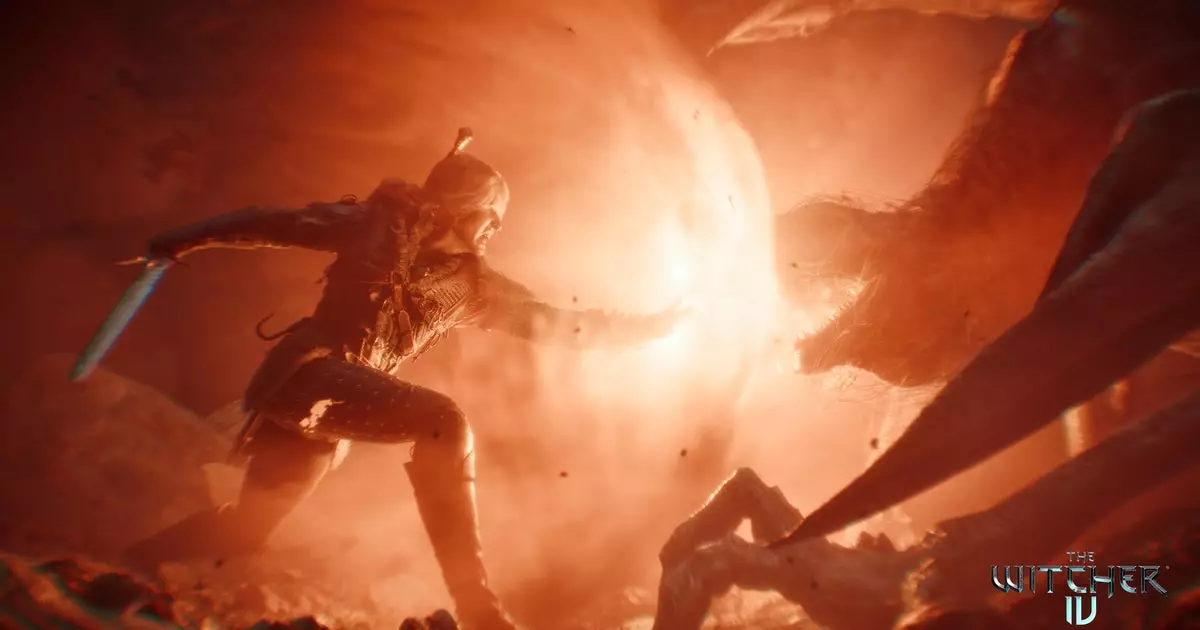The recent announcement of The Witcher 4 has stirred quite a bit of debate among gamers and fans of the series. With Ciri taking the lead role, the shift from Geralt, the iconic witcher, to a more complex female character has sparked discussions that reveal a mix of excitement and skepticism. Critics and enthusiasts alike are examining not just the character change, but also the implications of Ciri’s unique journey and capabilities within the lore of The Witcher universe. Despite some controversy regarding Ciri’s role as a protagonist, this decision could signify a bold step towards a more authentic storytelling experience.
Ciri represents a departure from the series’ roots, where male characters predominated. The reaction to Ciri’s ascendance is often polarized, with some detractors expressing dissatisfaction over a woman leading a franchise primarily known for its male hero. However, this perspective risks overlooking a crucial aspect of Ciri’s character development established in Sapkowski’s books, where she is frequently depicted as a witcher in her own right. Game directors Sebastian Kalemba and Philipp Weber have acknowledged this foundation, emphasizing that story is at the heart of their approach. Ciri’s character allows the developers to explore storytelling dimensions that expand beyond their established hero.
One of the compelling angles of Ciri’s character is her relative lack of experience at the start of The Witcher 4, contrasting sharply with Geralt, who is portrayed as a grizzled veteran. This dynamic opens a channel for gamers to engage with Ciri’s journey as she grows into her witcher identity. Unlike Geralt, whose character has already been defined through years of narrative experience, Ciri has a narrative space in which players can influence her decisions and personal growth. Her trajectory implies that player choices will shape not only her skills but also her moral compass and worldview, enabling a more personalized gaming experience that encourages emotional investment.
The Witcher series is known for its dark, often brutal depiction of gender and societal issues. With Ciri leading the charge, the narrative can take a more nuanced approach to these themes, exploring the challenges women face in a patriarchal society. The development team has recognized the game’s historical context, drawing inspiration from medieval folklore, and it is essential that these elements are handled thoughtfully. By introducing Ciri’s character, the creators have an opportunity to challenge existing tropes and highlight female resilience in a world that regularly subjugates characters based on gender.
Another point of interest lies in Ciri’s supernatural abilities, which could significantly shift the gameplay dynamic established in previous Witcher titles. The question remains—how will Ciri’s extraordinary powers integrate with the game mechanics? Will she begin in a reduced capacity, only to develop her full potential as the game progresses, or will her skills remain more consistent from the outset? While the developers have been tight-lipped on specifics, they assert that this aspect of Ciri’s character has been a primary concern during development, indicating that players can expect a well-thought-out balance between narrative and gameplay.
The Witcher 4, once known under the codename Polaris, marks a pivotal chapter in the franchise’s evolution. This installment not only opens doors for a series of future titles but also aims to redefine what players can expect from a protagonist. As the developers move forward, they are intent on enriching the world of The Witcher with a more diverse range of characters and experiences. Ciri’s story is just the beginning, and it has the potential to resonate deeply with a wide audience, providing an innovative take on fantasy gaming.
The decision to have Ciri as the protagonist in The Witcher 4 presents an exciting intersection of character evolution, gameplay innovation, and social commentary. While some may cling to nostalgia for Geralt, this new direction encourages players to embrace a fresh narrative. It promises to ask difficult questions and challenge stereotypes in a manner that is mature and engaging. As players await the game’s release, the hope is that Ciri’s journey will not only captivate audiences but also redefine a genre, proving that compelling storytelling with a female lead can flourish in even the darkest of worlds.


Leave a Reply